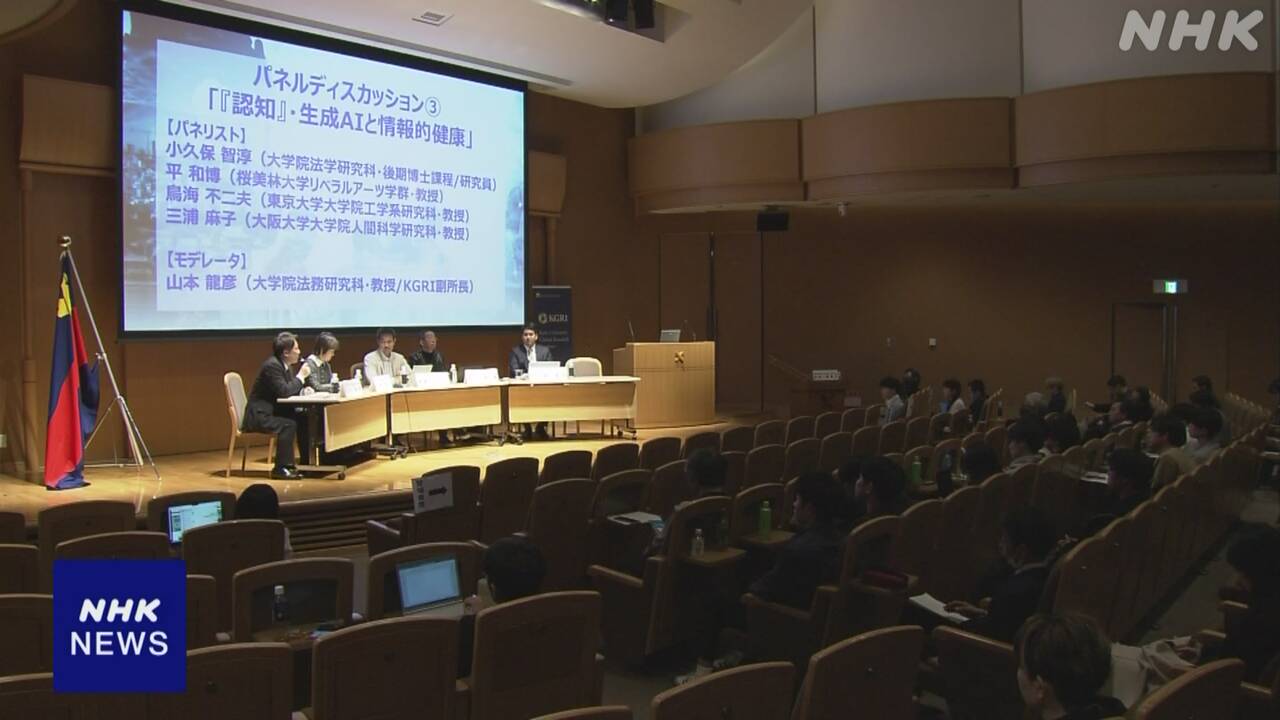As the development and use of generative AI rapidly spreads, there is a growing concern that it will be misused for disinformation and fake news, and a symposium was held in Tokyo to discuss methods and issues for correctly assessing information.
This event was held in Tokyo's Minato Ward by a project team made up of researchers in data analysis and constitutional law, and experts and media personnel reported on research results regarding the current situation and issues surrounding disinformation. did.
During a panel discussion on the theme of generative AI, Professor Fujio Toriumi of the University of Tokyo Graduate School, who researches AI, said, ``Until now, we have judged whether information is correct based on images and videos, but generative AI can create it. "As a result, the basis for correct information has been lost, and this may become a major social problem in the future."
In addition, Professor Heiwahiro of Oberlin University, who is familiar with fake information, said that during the Noto Peninsula earthquake,
``deepfakes,'' which create sophisticated fake images and videos using generative AI, were not noticeable, while ``bots,'' also
known as ``bots,'' were posted.
He reported that there have been cases of false information being spread by automatic posting programs, and
stressed that false information can be life-threatening in times of disaster.
One of the organizers, Professor Tatsuhiko Yamamoto of Keio University, said, ``As the risk of disinformation increases, we are required to collect information in an unbiased and balanced manner, and we will continue to consider the necessary methods.'' I want to,” he said.

